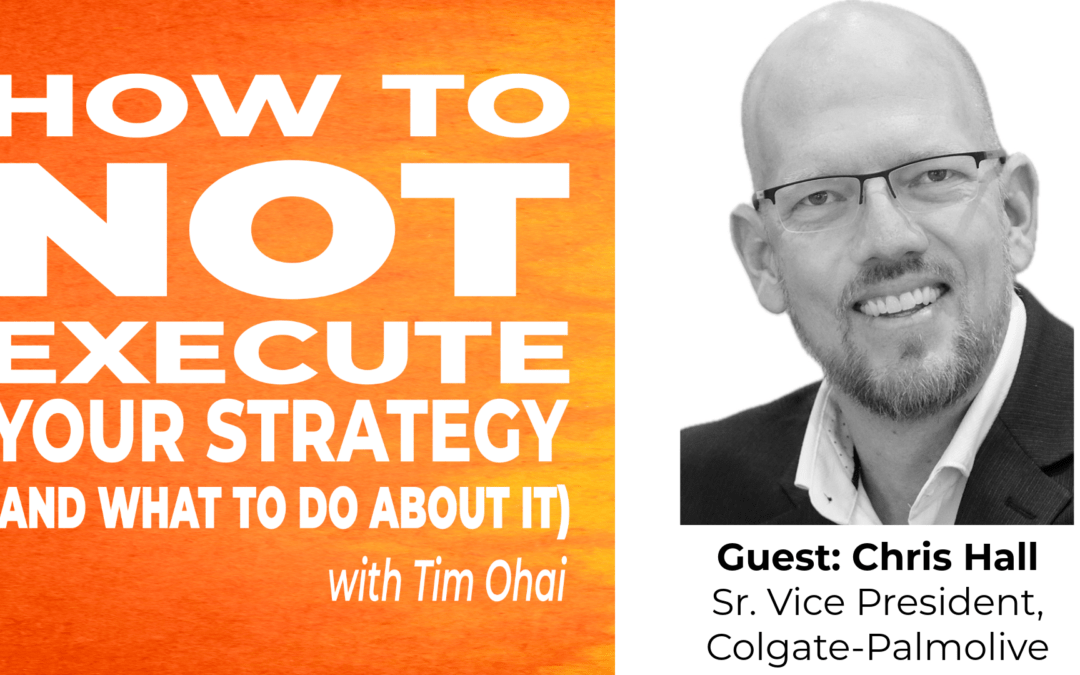How to NOT Execute Your Strategy (S2E7): Chris Hall
Chris Hall is the Senior Vice President and General Manager of East and West Africa for Colgate-Palmolive. He oversees the business in 39 countries and intimately knows how to execute strategies in highly complex situations. What is highly fascinating to me is that his most recent organizational survey showed a whopping 95% of all of his employees are in alignment with the company strategy. In this episode, we explore his secrets to keeping everything moving into the right direction to consistently deliver results.
- Find the audio version on your favorite platform or go directly via RSS.com
- Watch this episode on Youtube
Three key concepts:
- Change management is a skillset that everyone needs in order to BOTH lead and follow change. Strategic efforts will always produce change, and that change will either cause your team to thrive or bog everything down.
- Slow down to let your leaders talk through the strategy BEFORE it executes. Allow them time to get their heads AND hearts into alignment with what is about to launch. This gives you both the benefit of collecting their insights about how to improve the execution and also to get their full buy-in.
- Sometimes, your people will not accept the change required by the strategy. When that happens, have the courage to address it head on. Talk it through with that person and, if necessary, be prepared to talk about an exit strategy with that player.
BONUS – Leader guide: Use the following questions for (a) self-reflection as a leader and/or (b) a great discussion with your team.
1) Listen to the full episode before this discussion.
2) Do you think our organization is good at managing change? Why or why not?
3) In 10 words or less, define what good change management looks like. Share your answers.
4) Chris and Tim talked about the difference between optimization and transformation. What do you think are the major differences between these two kinds of change efforts?
5) On a scale of 1-10 (10 being highest), how would you rate our team’s ability to optimize? Using the same scale, how would you rate our team’s ability to transform? Why do you think this?
6) Looking at yourself, what skillset do you see as an opportunity to improve as a leader – leading optimization or leading transformation? How could you improve your personal self-assessment by 1 or 2 points?
7) Option: Take time right now to define exactly what that looks like (the outcome(s), metrics, and requirements).
If you enjoyed this episode, please share it with at least one person. And leave me a review on whatever platform you engaged this podcast. Your feedback is invaluable to me.
Holomua. Onward and upward.
All the best ~ Tim
PS Like what you’re reading? Please share this content with a friend so they can join the community.


Recent Comments